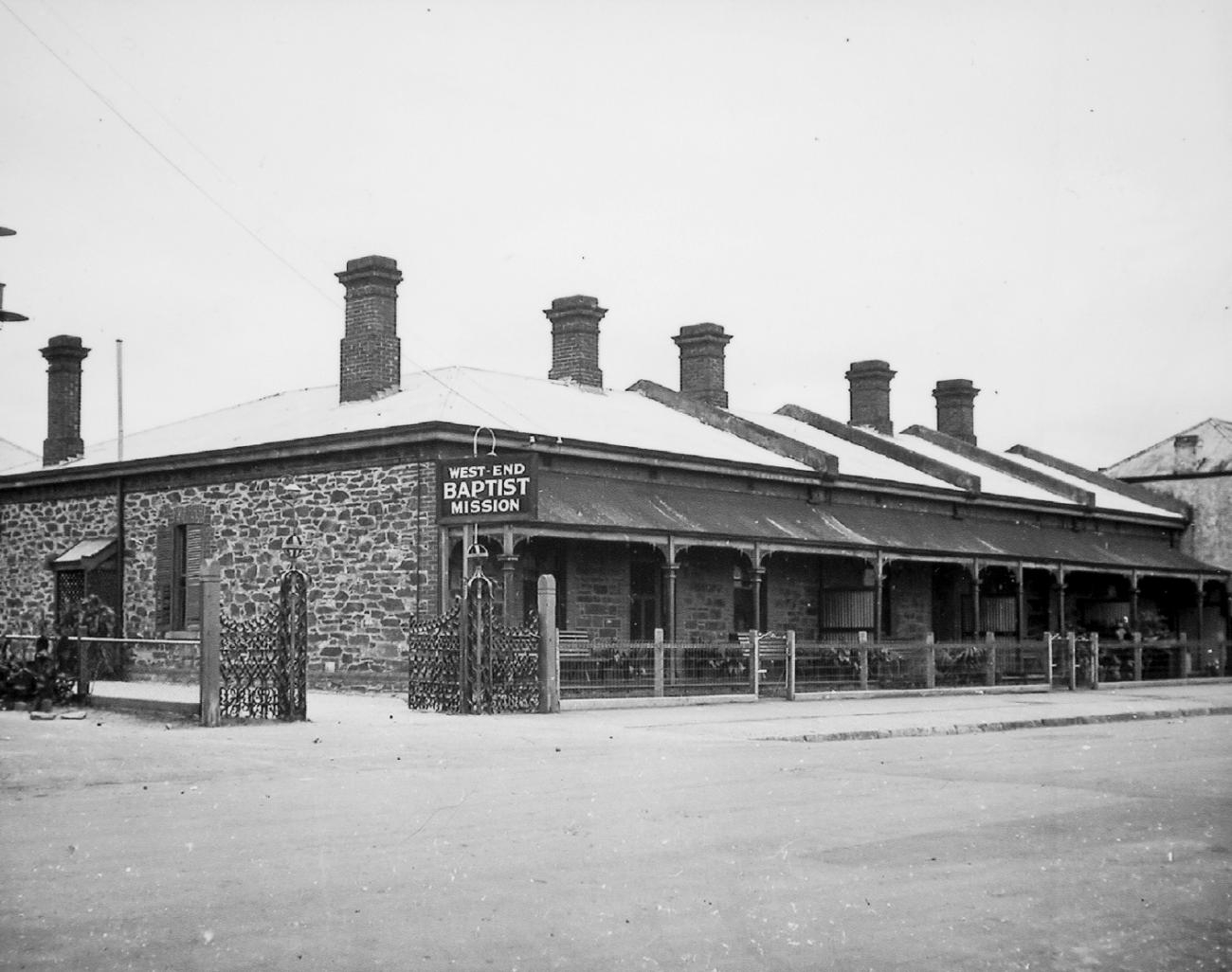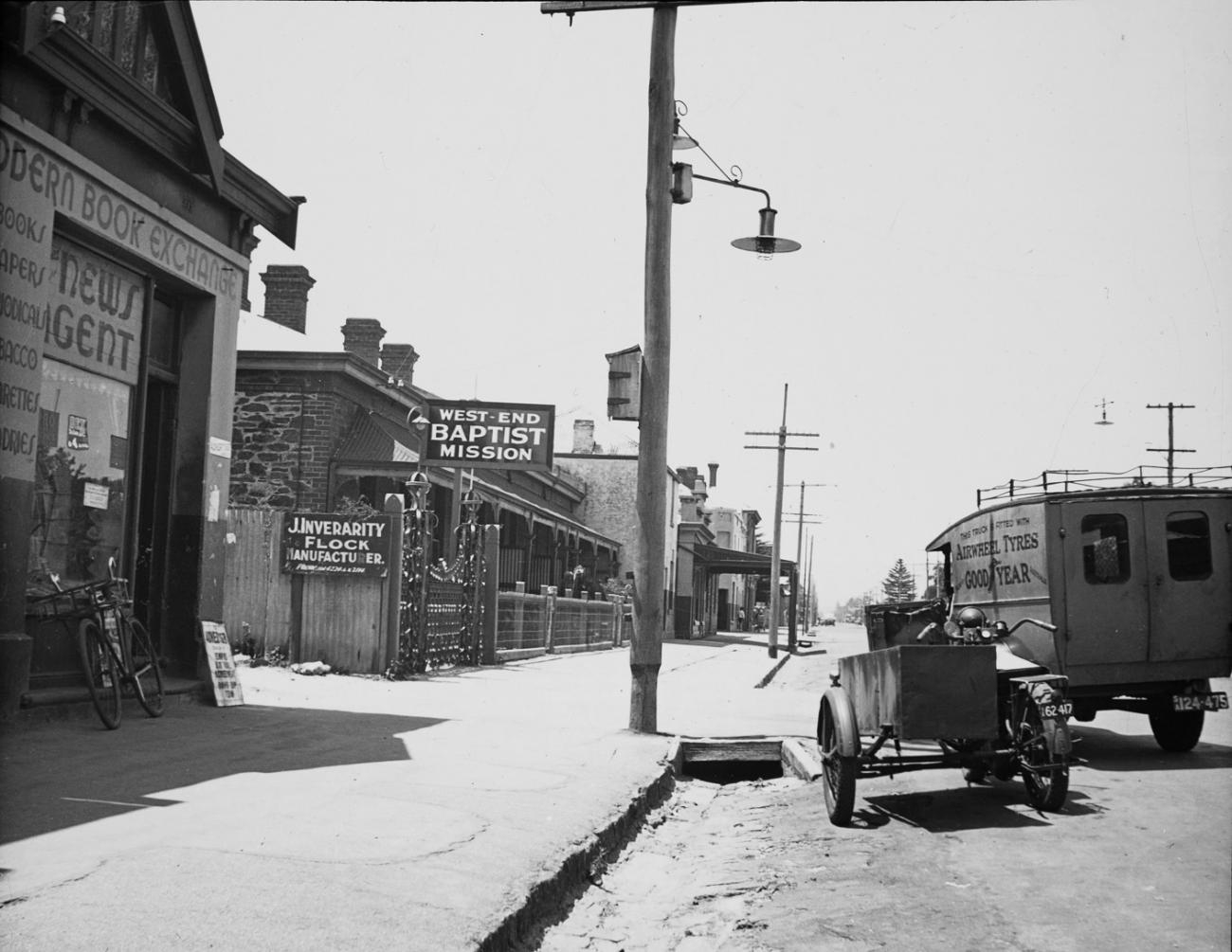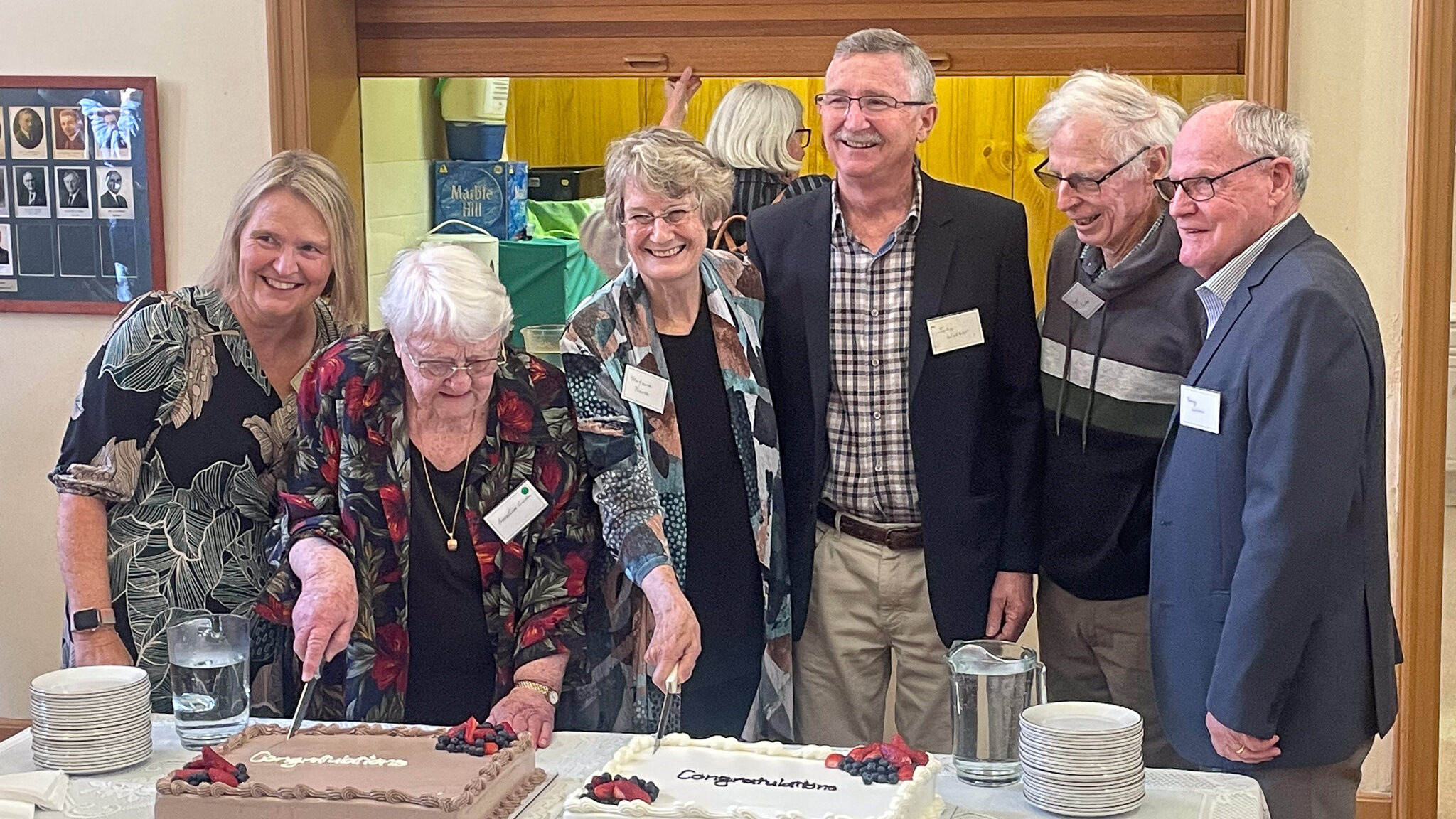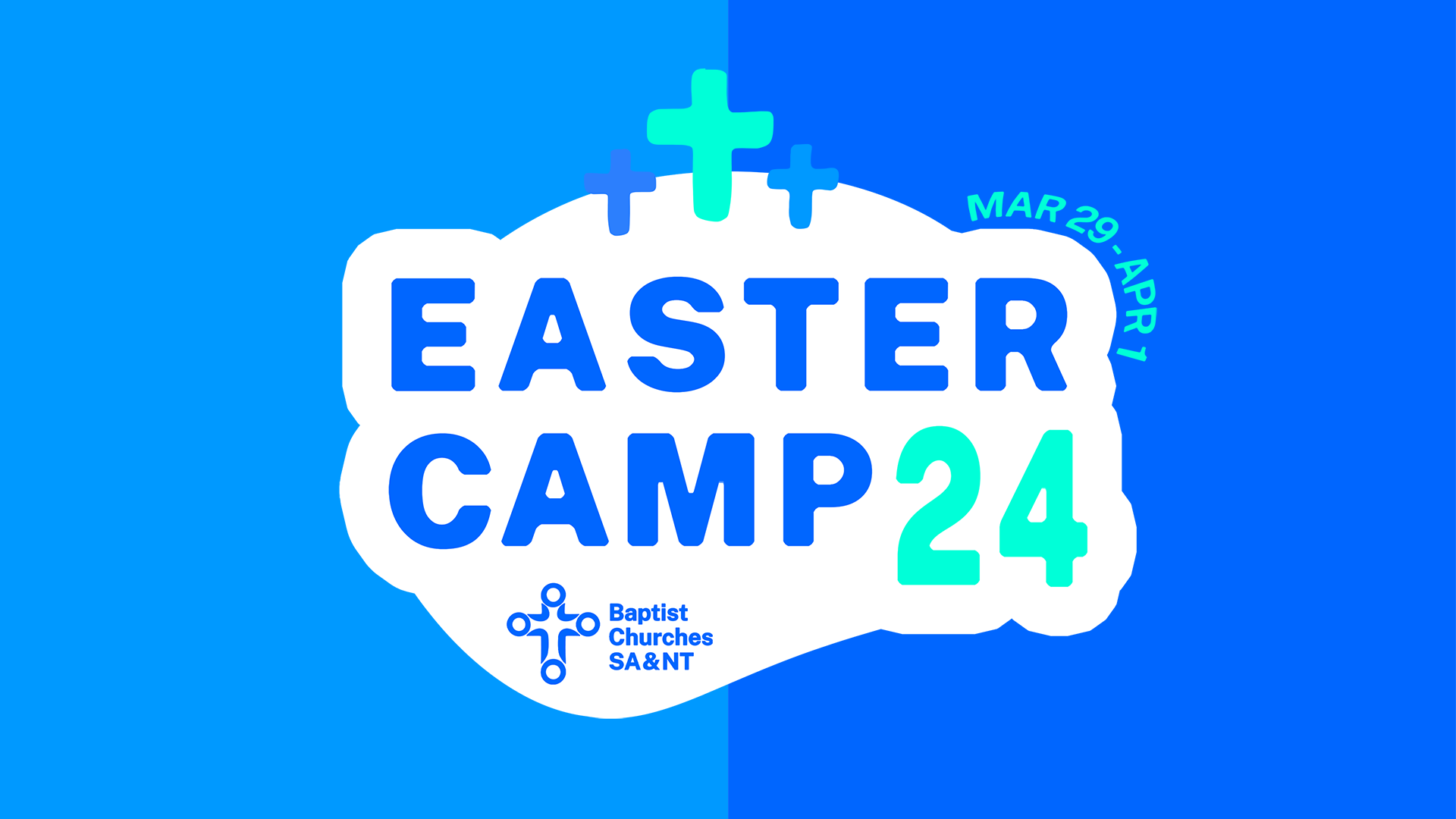Our Story
The story of the Baptist movement in South Australia and the Northern Territory is a story of faithful people and incredible local communities of faith.
From the first Baptist gathering in the emerging colony of South Australia in 1838, to the initial association with Warlpiri people at Rock Hill (later Yuendumu) in 1946, the accounts that follow are as vast as the Tanami. We are incredibly thankful for the efforts of historians to preserve and share the stories that shape who we are.
Baptists in South Australia
The 160-year story of Baptist Churches of South Australia is a story of people, communities, and churches seeking to follow Jesus in changing times. It is a good story, with much to be thankful for, even as we acknowledge seasons of challenge, mistakes made, and opportunities lost. We have been, and continue to desire to be, a movement that has courage to take risks and try new things for the sake of the gospel.
Continue Reading
The first Baptists in South Australia arrived in February 1837. Many early Baptists came hoping to share the gospel with indigenous peoples and with humanitarian sentiments not necessarily shared by others in the new colony, but unfortunately, they also came with the sense of cultural superiority by which colonisation was justified. In 2000, South Australian Baptists offered a formal apology to Indigenous Australians, noting that, “By misunderstanding your culture and imposing our ways on you, we have caused you much pain and loss.”
The new colony had been motivated by the desire for “religious and social betterment” and was known as a “Paradise of Dissent” where there was no established church or state financial support for religion. Baptist leaders like George Fife Angas, David McLaren, and Henry Waymouth were key figures in the South Australian Company. McLaren was the first lay minister of the church on Rundle Street and conducted the first baptisms in the River Torrens in 1840.
Over the next twenty years, rural churches were formed in places like Gumeracha, Angaston, Clarendon, South Rhine and Salt Creek, Eden Valley, Coromandel Valley, Tea Tree Gully, Lyndoch, Morphett Vale, Hackham, Aldinga, Port Lincoln, and Mount Gambier, with suburban churches including Bowden-on-the-Hill, Magill, Mitcham, and Alberton.
In 1861, Rev Silas Mead arrived from England to pastor the Baptist chapels in Adelaide and North Adelaide. He led the building of the church on Flinders Street and was instrumental in founding both the South Australian Baptist Association (now BCSANT) and the Baptist Missionary Society (now BMA). The next fifty years was a time of significant growth, with evangelistic and social campaigns and church planting across the city (including Norwood, Goodwood, Semaphore, Parkside, Glen Osmond, Knightsbridge, Grange, Richmond, Unley Park, Edwardstown, Lockleys, Brighton, Seacliff), in the hills (Mount Barker, Birdwood, Norton Summit), and the regions (Moonta, Gawler, Tarlee, Peterborough, Jamestown, Clare, Port Augusta, Laura, Orroroo, Port Pirie). The first Australian Baptist cross-cultural missionaries were sent from Adelaide to then East Bengal in 1882, leading to the Bangladesh Baptist Church Fellowship, which has since planted over 500 churches.
The Adelaide Baptist Theological College was formed in 1869, which then joined with the Congregational and Presbyterians to become Union College. When the College was offered a significant endowment, the council decided this should be used for a larger public purpose and gifted it instead for the formation of Adelaide University. The Baptist College re-opened in 1891 for the training and equipping of pastors and missionaries.
The West End Mission and Church (now Baptist Care SA and Westcare) was established in 1913 as a missional response to growing social needs. By 1918, the association had 80 member churches and an additional 29 preaching stations. The years of the World Wars and the Great Depression saw some loss of momentum for the movement, with some questions around what it meant to be Baptist and reactions to different theological views, as well as facing the social and financial challenges of the era. New churches continued to be planted, however, including West Croydon, Underdale, Colonel Light Gardens, and Broadview.



A boys’ school, King’s College was established in 1923 jointly with the Congregational Churches, and the Morialta Protestant Children’s Homes in 1924 in partnership with a number of other denominations. A Federation of state Baptist Unions (now Australian Baptist Ministries) commenced in 1926, with SA’s enthusiastic endorsement.
Renewed optimism came post-World War II, including an emphasis on Sunday Schools, Christian Endeavour and youth groups. Baptist Churches were significantly involved in the Billy Graham Crusades in 1959, with nearly half the population of Adelaide attending a rally, and many people coming to faith in Jesus and joining our churches. Kings Baptist Grammar School was founded in 1983 by Tea Tree Gully Baptist Church, and today has campuses at Wynn Vale and Mount Barker.
From the 1970s on, the movement has increased in cultural diversity due to various waves of immigration including Slavic, Greek, Romanian, Vietnamese, and Filipino. Since 2005, we have welcomed eight member churches from Burmese communities, and our congregations across the movement hold gatherings in at least 12 different languages. In 2015, the Aboriginal Berean Community Church, with courage and grace, chose to join as a member church, and we continue to learn from them as we all walk together towards the reconciliation of all things.
Read the South Australian Baptists’ formal apology to Indigenous Australians
Discover Silas Mead and his family in a recently published book
Baptists in the Northern Territory
The 54-year story of the Baptist Union of the Northern Territory is a story of faithful communities, pioneering people, and contextual mission and theology. Working together across geographic distances and cultural diversity, God’s blessing has been seen even through times of challenge.
The first Baptist churches in the Northern Territory were in Aboriginal communities, partnering with the Baptist Home Mission Board (now part of Baptist Mission Australia). Baptist Missions were established at Yuendumu in 1947, and then in Warrabri in 1957 and Hooker Creek in 1962 (the latter two renamed Ali Curung and Lajamanu respectively after land title was granted to the Yapa in 1978). Kalkarindji, formerly known as Wave Hill, is called the birthplace of Aboriginal land rights: a seven-year walk-off and strike commenced in 1966, which eventually led to the symbolic handover ceremony in 1975 when Prime Minister Gough Whitlam poured sand into Vincent Lingiari’s hands. Lingiari was a key leader in the Baptist Mission established at Kalkarindji and Dagaragu in 1976.
Continue Reading
The first non-indigenous Baptist church in the Territory was established in Darwin in 1964, led by Rev George Ashworth (a RAAF Chaplain) and Rev Lloyd Kent, a key leader for over 40 years and the principal initiator of the Darwin (1964), Casuarina (1969), and Palmerston (1984) churches. Alice Springs Baptist Church was also established in 1965 but due to location, chose to join the Baptist Churches of South Australia.
A Baptist Church in Katherine began in 1966 as a partnership between the Darwin Church and the Aboriginal Inland Mission, with the church revitalised in 1988. Katherine’s pastor James Cox started church meetings at the local Warlpiri Camp, which later began a member church of BUNT in its own right.
The Baptist Union of the Northern Territory was formally initiated at a meeting of both indigenous and non-indigenous churches at Katherine in May 1970. Churches were planted in the 1970s at Adelaide River and Nhulunbuy, although both have since closed. Two churches established in the ‘rural’ outskirts of Darwin have joined BUNT, Cross Roads Christian Church at Palmerston in 1987 and Cornerstone Christian Fellowship in Howard Springs in 2010.
From 2010, BUNT worked in partnership with Baptist Churches SA who provided support around accreditation, training and compliance. In 2021, the leaders of BUNT formally asked BCSA to consider an amalgamation, to partner together in more significant ways and to release capacity for mission and ministry in the Territory.
Read Rev. Graham Paulson’s 2009 paper on Baptists & Indigenous Australians
Becoming one association
South Australia and the Northern Territory have long shared connections and resourcing. Baptist ministry connections go back to at least the 1940s. From 2010, our two associations worked together in a formal partnership, and in 2023 we officially amalgamated into one association so that we might better support and resource local churches across SA and the NT. We look forward to God leading us into the future and seeing our movement grow as more people come to know Jesus and new churches are planted.
Learn about our twice-yearly assemblies
See who currently serves on our Assembly Board
View our 2023-2026 Strategy
Associated Organisations
Discover the organisations we work closely with as we seek to follow Jesus, love people, and serve God’s mission in the world
SA Baptist Historical Project
A group of like-minded people concerned that we recognise the significance of the past for the present life of the Baptist family.
(08) 8357 1755
PO Box 432, Unley SA 5061
Coordinator: Rev John Walker



